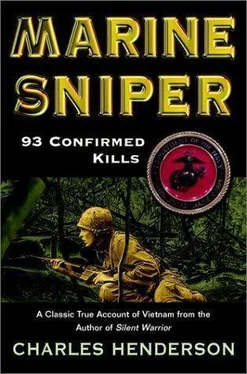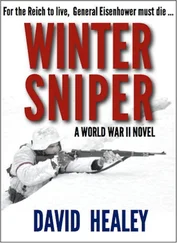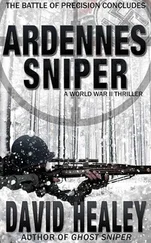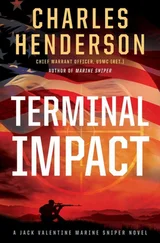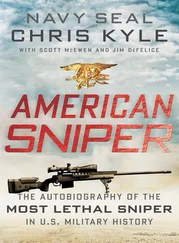Charles Henderson
MARINE SNIPER
93 Confirmed Kills
There is no hunting like the hunting of man, and those who have hunted armed men long enough and liked it, never care for anything else thereafter.
—Ernest Hemingway
To be a nationally recognized shooting champion takes a special kind of individual. To be effective on the battlefield as a sniper requires even more extraordinary qualities.
Gunnery Sergeant Carlos Hathcock is one of those rare individuals who has carved a niche in Marine Corps history by being both.
It takes a special kind of courage to be alone: to be alone with your thoughts; to be alone with your fears; to be alone with your doubts. This courage is not the superficial brand stimulated by the flow of adrenalin. Neither is it the courage that conies from the fear that others may think one a coward.
It is the courage born of honor.
Honor on the battlefield is a sniper’s ethic. He shows it by the standards and discipline with which he lives life in combat. By the decency he shows his comrades. And by the rules he adheres to when meeting the enemy.
The sniper does not hate the enemy; he respects him or her as a quarry. Psychologically, the only motives that will sustain the sniper is the knowledge that he is doing a necessary job and the confidence that he is the best person to do it. On the battlefield hate will destroy any man—and a sniper quicker than most.
The sniper is the big-game hunter of the battlefield, and he needs all the skills of the woodsman, marksman, hunter, and poacher. He must possess the field craft to be able to position himself for a killing shot, and he must be able to effectively place a single bullet into his intended target.
Gunnery Sergeant Hathcock was all of these things with a full measure of the silent courage and quiet optimism of a true champion.
The war in Viet Nam was ideally suited to sniper warfare. However, the rules of engagement and a lack of understanding of the sniper’s role made his effective employment a constant struggle. The struggle continues.
Sadly, there are few officers in the United States Armed Forces today who understand even the basic rudiments of marksmanship, much less sniping. Thus diey cannot possibly understand the potential of this flexible, versatile, and cost efficient fighting asset. Sniping has a history extending from the Renaissance achievements of Leonardo da Vinci who, standing on the walls of besieged Florence, picked off enemy soldiers with a rifle of his own design and of Benvenuto Cellini who, during the siege of Rome in 1527, sniped the enemy commander, the Constable de Bourbon, to the modern era and Hathcock’s 93 confirmed kills in Viet Nam, which included high-ranking commanders.
At the beginning of every conflict in this century there has been a slowly dawning realization of the need for snipers, and at the end of every conflict there has been an effort to put that genii back in its bottle. Not only has the officer corps showed little understanding of the support and employment techniques necessary to the successful deployment of the weapons system we call a sniper, but because of weak stomachs, or a desire to conciliate others with weak stomachs, they have attempted to suggest that sniper warfare is morally wrong and unworthy of a role in the United States Armed Forces. The only reply to that must be that it is doubtful if it is either reasonable or moral to import the standards of Hollywood westerns, in which the good guys never shoot first, onto the battlefield.
I’m comfortable in my mind that there is little hope for understanding from the old guard. However, I pray that the young officers of today will read this book with an inquisitive mind. I hope that they will look at the requirements of the modern battlefield and see the great potential of the sniper system. Hopefully, they will see that the success and effectiveness of the sniper is limited only by one’s imagination.
There can be little doubt that Gunnery Sergeant Hathcock was effective in his role as a sniper. What is not widely known is that he became the focal point of a staff effort to legitimize sniping.
I was the marksmanship coordinator in the Office of Training at Headquarters, United States Marine Corps, from 1975 through 1977. During this period we staffed a proposal for a permanent table of organization and table of equipment for the sniper unit.
There was a strong effort at this time to delete the sniper program from the Marine Corps. As a result, I conducted a personal lobbying program that extended from the handball courts to the briefing rooms; from the Officer’s Club at Quantico to seminars on urban warfare. There, Carlos became the symbol of what could be.
Carlos’s story was told again and again. It added credibility to the too often impersonal and unimaginative thought processes used by a major staff. Carlos Hathcock not only sparked but inflamed the imaginations of many who would have removed all traces of sniping from the Marine Corps. His real-life heroics served as a demonstration of what could be accomplished with proper training, equipment, and leadership.
Eventually, through the efforts of many men, a permanent sniper table of organization and table of equipment within every Marine Division was established, and approval was given for what has become the finest school on the art of sniping in the world. Without Hathcock’s story and without his courage, perhaps none of this would have come to pass.
E. J. LAND
Major, U.S. Marine Corps (Retired)
This book is based upon the personal recollections of the participants and upon the official Marine Corps records kept at the Marine Corps Historical Center in Washington, D.C. Operational orders, situation reports, and after action reports provide the historical framework for the story Marine Sniper tells. As for the actions of the enemy, whatever was not observed by American eyes was reconstructed from the evidence found after battle. And in specific instances spectacular windfalls came my way: the notebook of the “Apache woman,” in which she kept a record of her day-to-day movements and observations and in which she reports on her encounters with the American enemy, was recovered after her death and lent me by a Marine who was on Hill 55.
In a few places I have taken the liberty of inventing dialogue for Hathcock’s North Vietnamese and Viet Cong opponents. Those are the only elements in the book that cannot be fully justified by a careful examination of the evidence. Everything else has been made factually accurate to the best of my ability.
1. Due Pho Shooting Gallery
A GENTLE BREEZE lustled the white feather in the Marine sniper’s floppy hat as he watched the land below through the telescopic gun sight. The soft stir of air had swept up die hill from the rice paddies and, just moments earlier, had touched a twelve-year-old Vietnamese boy whose khaki shirt hung loose and wet across his skinny back and who struggled to keep his heavily laden bicycle upright.
It was a mild February afternoon in 1961, and Sgt. Carlos Norman Hathcock III sat cross-legged behind his M-2 .50-caliber machine gun. A year and a half earlier, at Camp Perry, Ohio, the slim, twenty-four-year-old Marine had won the U.S. 1,000-Yard High-Power Rifle Championship. Now he took aim from the southern finger of a solitary peak in South Vietnam.
He squinted as he stared through the eight-power Unertl sniper scope mounted on the top, right-hand comer of the machine gun’s receiver. His spotter, a darkly tanned, shirtless Marine staff sergeant named Charles A. Roberts, silently crouched next to him and looked through an M-49 twenty-power spotting scope, watching for the enemy.
Читать дальше
